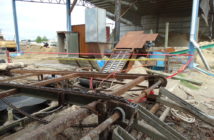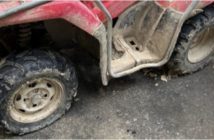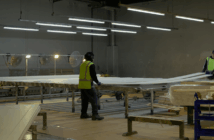Machine guarding failures in the meat processing industry are continuing to cause life-changing injuries to workers
How it should be done
The Alliance Group Limited was fined $332,000 and paid reparations late last year after an incident where an inexperienced worker’s hand was amputated in a piece of machinery in March 2017.
WorkSafe found that the worker had been employed at the plant for only five days and was left unsupervised on a task. Due to the worker’s lack of familiarity with the job, he opened a section of the machinery used for dehydrating blood into a powder and placed his right hand inside. His hand came in contact with a rotating screw and was amputated.
Yet, this month, Alliance was back in the District Court and fined $331,875 as a result of a January 2018 incident at a different plant in which one of its workers had the tips of their fingers amputated while cleaning the mincer box of a beef boning machine.
After last year’s case, WorkSafe’s Deputy General Manager for Investigations and Specialist Services at the time Simon Humphries said, “This is a stark reminder to others operating machinery in every industry to ensure machinery is adequately guarded.
“New Zealand has rigorous and accessible standards for machine guarding – adhering to them and mitigating the risks your machinery poses is imperative to keeping workers safe from harm,” he said at the time.
Following this latest incident, the worker was unable to locate anyone to assist them on site and had to drive to Gore Hospital for medical assistance which was more than a 12km away.
A WorkSafe investigation found the lid of the mincer box wasn’t secure. The worker had not received adequate training to clean the machine. There were also no written procedures for the operation or clean-up of the machine.
WorkSafe Chief Inspector Investigations Steve Kelly said numerous health and safety failings led to this incident, which will continue to impact the worker for the rest of their life.
“This incident could have been avoided simply by placing a padlock over the mincer lid to secure it, or by ensuring workers were provided with adequate training and supervision.
“The risks associated with unguarded moving parts of machinery in the meat processing industry are obvious and well-known. However, machine guarding failures in the industry continue to cause significant injuries to workers and it’s unacceptable.”
In both cases the Alliance Group Limited was sentenced under sections 36(1)(a), 48(1) and (2)(c) of the Health and Safety at Work Act 2015.
In essence: being a PCBU, Alliance failed to ensure, so far as was reasonably practicable, the health and safety of workers who worked for the PCBU. The maximum penalty is a fine not exceeding $1.5 million.
For its part Alliance, which is a cooperative owned by New Zealand farmers, said in its annual report dated November 2018 “Health and safety is a key part of our strategy and our first consideration when making any business decision.
“We are committed to achieving world class health and safety standards across the co-operative and continuing to invest in this area.
“Our Total Recordable Injury Frequency Rate (TRIFR) has improved by 34 per cent this year and we are preparing to launch a new initiative on well-being, specifically focusing on mental health,” the report said.
The Annual Report devoted three sections to “Keeping our people safe”, “We care about our people” and “Sustainability – the environment.”



